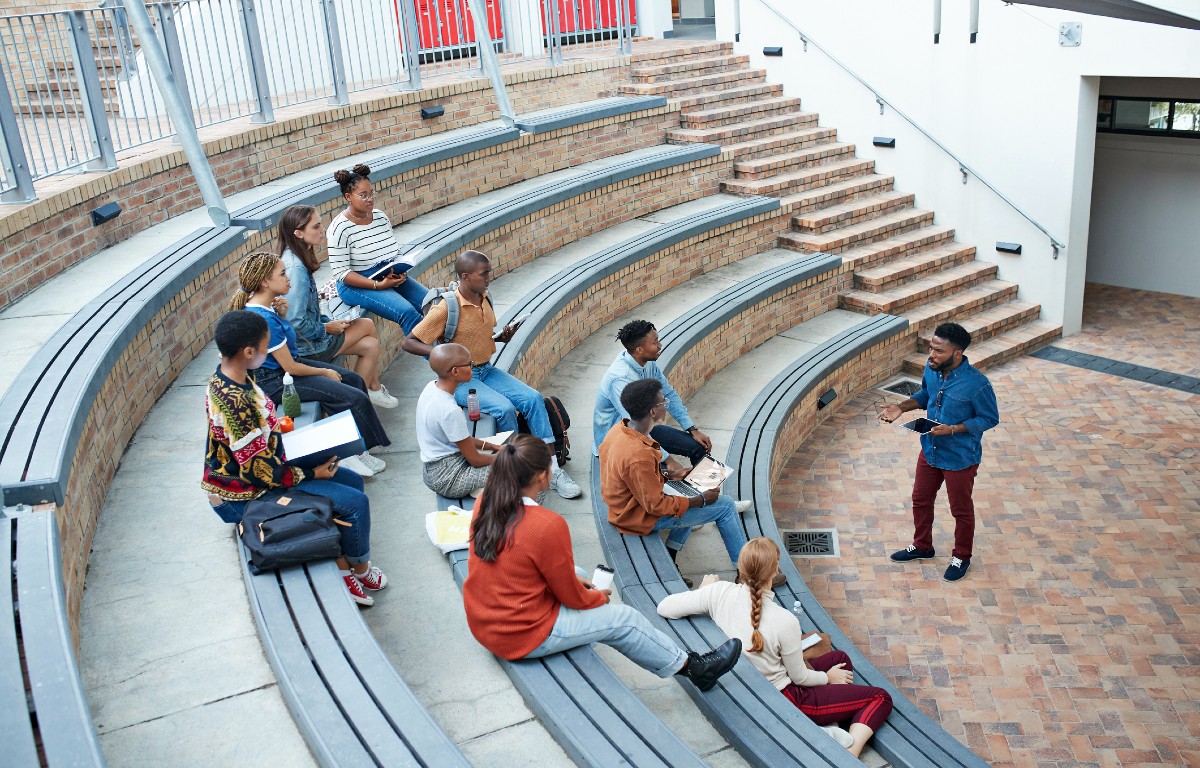 What does it mean to be a scientist? This is a question I have struggled with for quite a long time. As a young and somewhat naïve undergraduate student, I used to think that the simple act of coming to the bench and designing and performing (sometimes beautiful, but quite often clumsy) experiments was a sufficient definition. I then joined a graduate program and discovered another dimension to the enterprise of science: to present, share, and discuss research with my peers, and disseminate knowledge that way. It was not until years into my graduate studies that I had the opportunity to discover a new, sometimes hidden meaning to the word “scientist”: teaching and mentoring students.
What does it mean to be a scientist? This is a question I have struggled with for quite a long time. As a young and somewhat naïve undergraduate student, I used to think that the simple act of coming to the bench and designing and performing (sometimes beautiful, but quite often clumsy) experiments was a sufficient definition. I then joined a graduate program and discovered another dimension to the enterprise of science: to present, share, and discuss research with my peers, and disseminate knowledge that way. It was not until years into my graduate studies that I had the opportunity to discover a new, sometimes hidden meaning to the word “scientist”: teaching and mentoring students.
It started as an experiment , as I had never had the opportunity to teach a class, nor had I received any formal training in pedagogy. As part of a pilot program aiming to increase the retention of underrepresented minorities and first-generation college students, I was offered the opportunity to mentor a group of first-year biology students. I found joy coming up with activities and discussion topics, a sentiment akin to how I felt when designing a particularly complex experiment. Years later, when a chance meeting with one of my former mentees led to a long conversation about how my words had inspired her to pursue a career in medicine, I realized the impact I had on many of these students.
Learning to Teach
While preparing to defend my thesis and planning the next steps in my professional career, I decided to search for training opportunities where I could develop my teaching skills and help make a difference to young minds interested in science. This is how I discovered the BETTR (Bronx-Einstein Training in Teaching and Research) program at Albert Einstein College of Medicine. This postdoctoral fellowship, funded by the National Institutes of Health, combines a traditional postdoc, where I can develop my own cutting-edge independent research program, with the chance to be trained in pedagogy, and develop and teach a course. Through BETTR I have received formal training in education via the Fundamentals of Course Design and Teaching course, directed by Dr. Michael Risley, as well as mentorship from Dr. Nelson Nuñez-Rodriguez, professor and coordinator at one of our partner schools, Hostos Community College.
Another aspect of the program that immediately drew me in was the emphasis that the BETTR program places on increasing the number of underrepresented minorities in STEM (science, technology, engineering, and math) fields. Our partner institutions, Hostos Community College and Lehman College, primarily serve these groups, with the goal of increasing diversity and inclusion. When I was a graduate student, I was one of only two Latino students in my program; I was painfully aware of the lack of diversity in many scientific fields, and of the importance of having access to someone who looked like me as a mentor and teacher.
Teaching and Leadership
What I did not anticipate from this experience was that there would be an opportunity to develop not just as an educator, but also as a leader. This summer, the BETTR program, in conjunction with Stony Brook and Rutgers, cohosted the yearly IRACDA (Institutional Research and Academic Career Development Awards) conference. For the first time, it was held online, due to COVID-19. This conference allowed IRACDA scholars across the nation to come together to share, discuss, and participate in workshops on grant writing, pedagogy, and diversity. At Einstein I was in charge of developing and leading several workshops, as well as of inviting the presenters for these workshops.
Another aspect of the BETTR program that I quickly learned to love is the support system it has offered me and the other scholars, especially this past year. Through our monthly meetings we have had the opportunity to discuss the impact that we as scientists have on our communities and the role that we, as educators and mentors, play in increasing diversity and fighting for social justice in STEM fields.
Today, while I was working on the introductory biology course I am teaching this semester, I reflected on what I learned through the BETTR program. I’m focused on how to make science interesting for a new generation of citizens and on how we educators can increase awareness of social issues. And I think back on what makes us scientists: how it is not just about the act of doing science with our fellows but about leading the next generation of scientists. To be a scientist is to be a leader and a mentor—someone who, through the act of teaching and sharing our passion for science and knowledge, can make a difference in society. I am learning this through the BETTR program at Einstein and I am excited to see where my career will take me.

